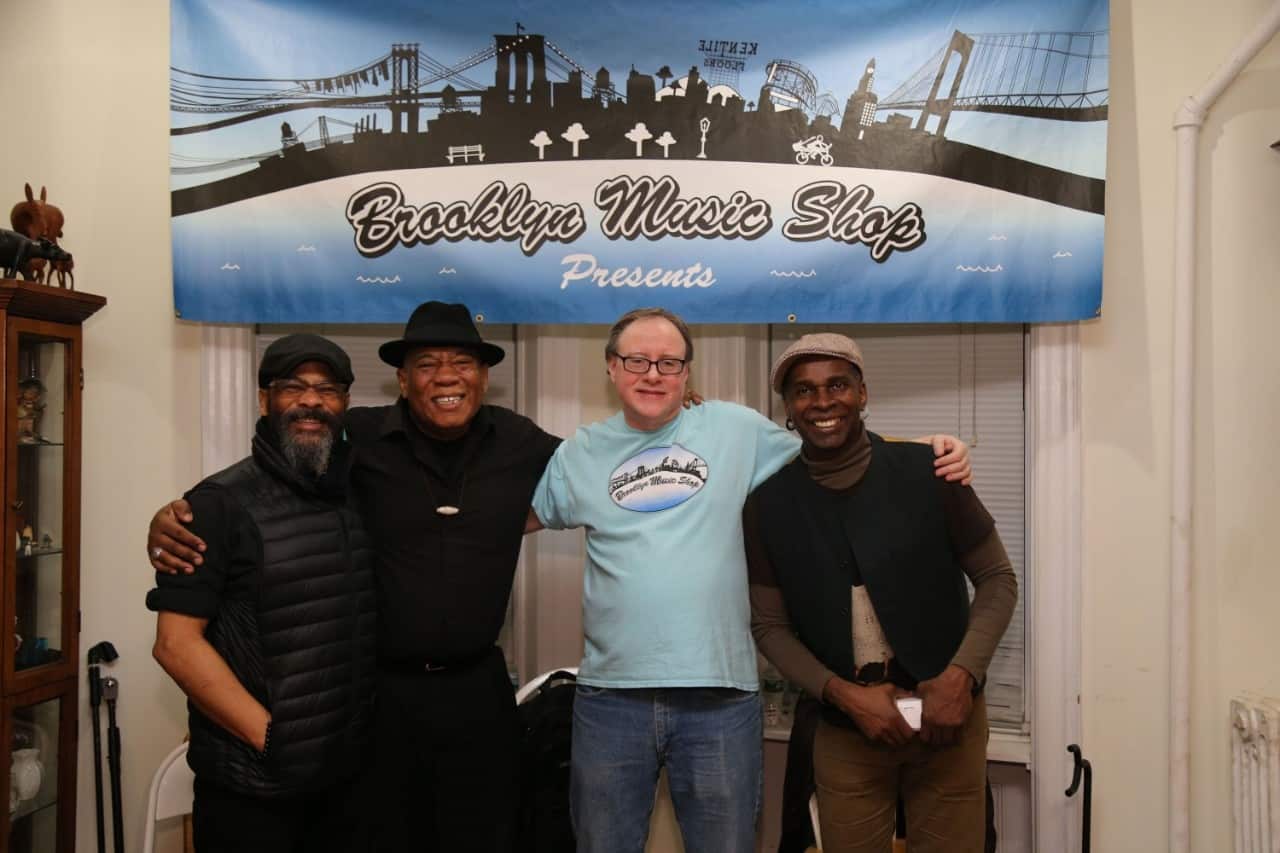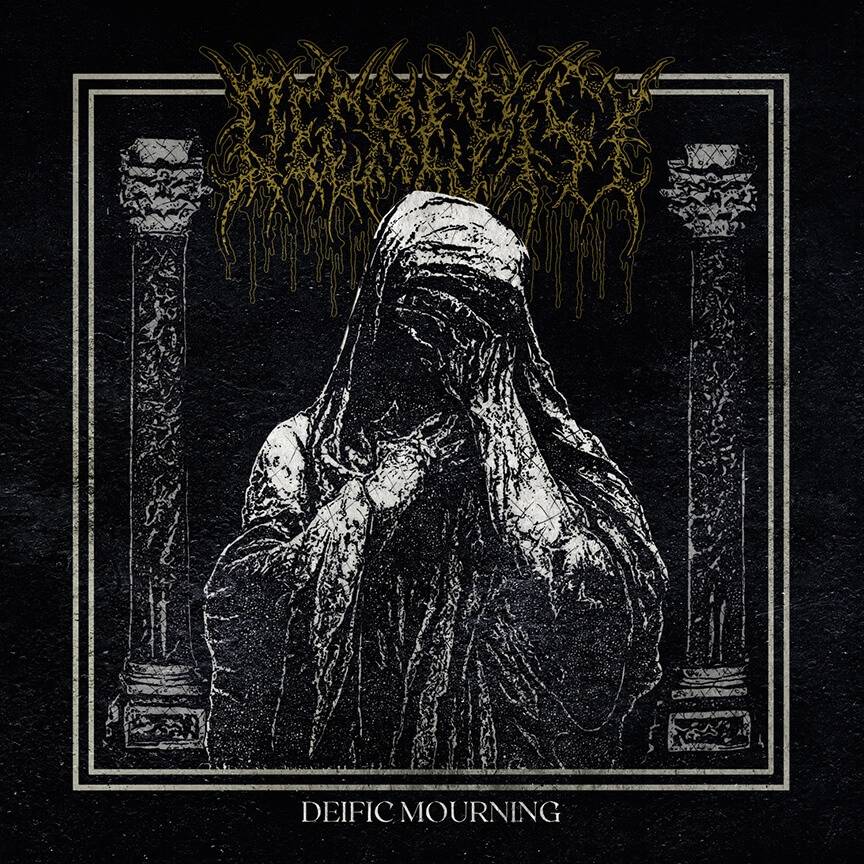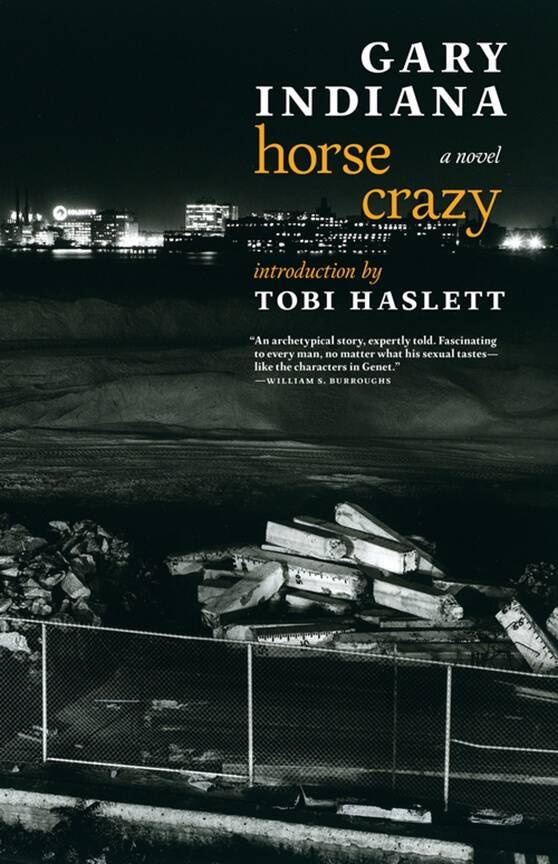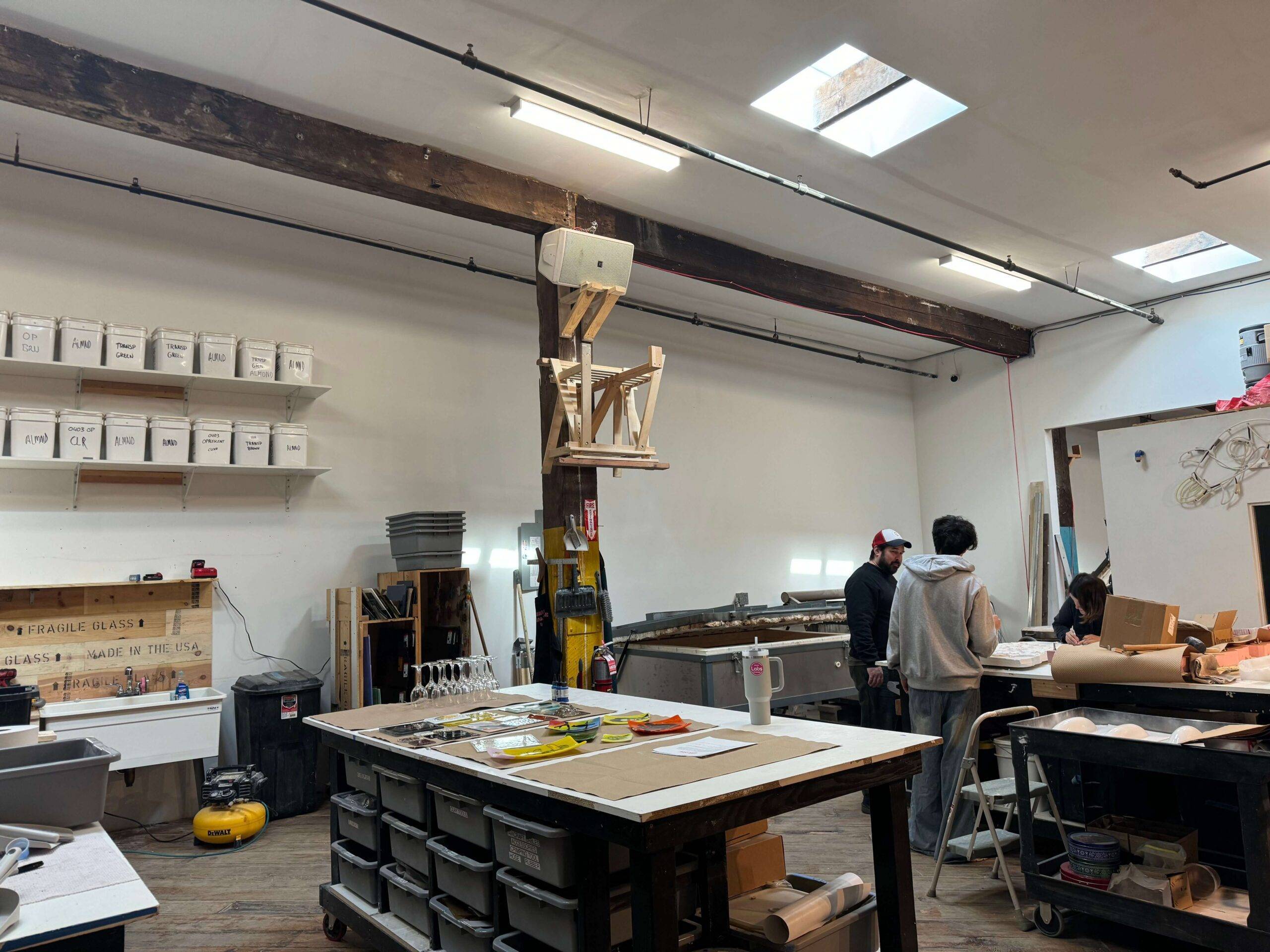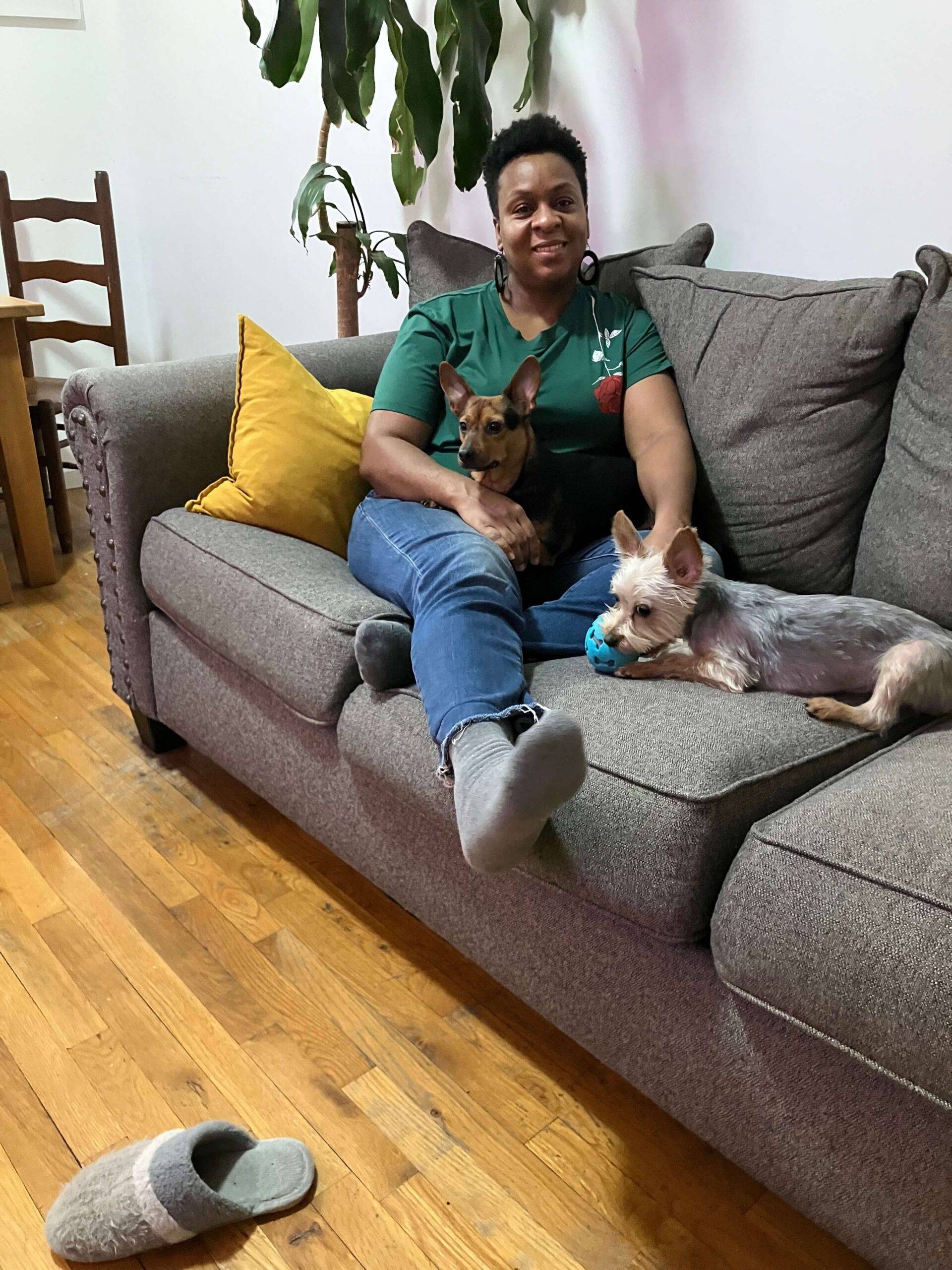The piano player and singer Aaron Louis Hurwitz goes by the nickname of Professor Louie. He was christened as such by Rick Danko of The Band. Professor Louie now has his own group, the Crowmatix. All of its members boast long associations with The Band family tree, having performed with the likes of Levon Helm and the other departed ones. The Professor was an actual member of The Band and produced their last few records. The Crowmatix guitarist, John Platania, was the featured player on the Van Morrison Moondance album and other early Van classics. There is a high degree of musical pedigree here, and I was fortunate enough to witness it all at work recently during a Professor Louie show in Don Duggan’s living room. This was another stellar Brooklyn Music Shop production, a Saturday night special.
The Brooklyn Music Shop is Don Duggan’s brainchild. A few weeks ago, I sat down with Don and my close friend Tom (the go-between) in Don’s kitchen and got the lowdown. Fortified with a strong mug of Earl Grey tea, I was the recipient of the royal treatment. Let me tell you, Don loves to talk about his passion, and his passion is live music. He kicked off with a Ray Charles quote, “There are two kinds of music… good music and bad music.” Don presents the former; he has little patience for the latter. His story is fascinating. It’s also very Brooklyn.
Now 63, Don Duggan came of age in working-class Bay Ridge. As an 11-year old lad, his first live concert was the Grateful Dead at the Fillmore East. Don made no bones about the mayhem of those early days, which stretched long enough into his life. He has been clean for quite some time: no booze, no drugs. One day, he just had to stop. But before that, Don was not shy of doing his best Keith Richards lifestyle imitation. On that road, he befriended and rubbed shoulders with gunslinger musicians, outlaw bikers and organized crime soldiers, some of Brooklyn’s and New York’s so-called finest.
Don told me of getting to know some Hell’s Angels, including one particular highly ranked character who was actually expelled from the Angels for drinking too much! How is that possible? Don’s closest ally in the Angels happened to be the shortest member of that New York clan. He was a drinking buddy, packing a singular street authority into a small frame.
Being from Bay Ridge and an alumnus of Bishop Ford High School, Don ran into his fair share of gangsters’ sons. The disco club 2001 Odyssey, where Tony Manero danced in Saturday Night Fever, was located on 64th Street in nearby Sunset Park, and it was a going concern. I remember driving customers there when I was working for the dubious Esoteric Car Service. Don explained that the young Italian Travolta types would go searching the bars in the hood, looking to bash in the heads of hippies, longhairs and punk rockers. “We might have had long hair,” Don said, “but we weren’t all pacifists.” Don continued on to say that he never had much time for this nonsense. Bay Ridge at its worst then resembled Custer’s Last Stand. It was an extremely insular place. Don posited that if a peer moved away to neighboring Bensonhurst, it was as if that person was all of a sudden living on the back end of the moon. This insularity and “king of the streets” attitude came with a price. Don thought it was no surprise that DA Rudy Giuliani (yup, him) was able to break the Mafia in the 1980s. He said that new generation then was so arrogant and brazen that once they felt real pressure from the Feds, they simply rolled over and ratted on everybody else to save their own asses. They basically did themselves in, like the “Ouroboros,” the ancient symbolic serpent that ate itself.
Hearing Don’s reminiscences is a bit like reading the opening chapters of Ringolevio, the autobiography by Emmett Grogan, the San Francisco Digger who grew up in Brooklyn too. I recommend that part of his book. But this is all to give you a sense of Don Duggan, because I want to fast forward to Don’s project, the Brooklyn Music Shop, and explain how he got there and what he is now doing with it.
In the early 2000s, Don’s hunger for involvement in live music ventures led him to the Falcon Ridge Folk Festival, an annual event held in Hillsdale, NY. He volunteered as a helper, first at the Activities for Kids tent, but later he graduated to the main stage and eventually became the co-stage manager for the Emerging Artists Showcase. Don began to make some important connections. One such person was Don Beesley, who ran the main stage. Don Beesley introduced him to another project called “Outpost in the Burbs” out of Montclair, NJ. There he met Joe D’Urso. a New Jersey roots rocker, who had palled around with the older more famous Jersey bunch: Southside Johnny, Bruce Springsteen and the like. Through Joe, and because he was regularly bumping into the top-billed performers like Garland Jeffreys, Don Duggan began to develop his own independent relationships with these musicians. The Montclair series of concerts attracted other well-known names… Jimmy Webb, Joe Walsh, Richard Thompson, Ian Hunter and Dave Davies, that kind of hierarchy. As a result of these experiences, Don amassed a veritable who’s-who list of live music personalities.
Around 2012, Don went out on his own and hired the Grand Prospect Hall in Park Slope to host a Joan Osborne, Catherine Russell and Holmes Brothers show. The Grand Prospect Hall used to advertise on Channel 9 late at night. It’s like a cross between the wedding venue in The Deer Hunter, a Miami Beach mob-controlled hotel lounge, and a set for an old Telly Savalas Diners Club credit card commercial. The concert was a resounding success for the audience, but Don took a financial bath. He was not to be deterred.
Don once belonged to a local drinking organization called the Raccoon Lodge. Like their television series namesakes Jackie Gleason and Art Carney, the Raccoons are blustery, harmless, hard-drinking guys. They mean well and hold the occasional fundraiser for neighborhood causes. One such effort was with Jorma Kaukonen, the ex-Jefferson Airplane and Hot Tuna guitarist, which Don helped organize. Tom attended this and it sounded hilarious. One thing to bear in mind here is that these old rockers have all cleaned up their acts; many are teetotalers in every sense of the word. Not so the Raccoons and their posse. Picture this: a high school basketball court, an aging sober musical legend up front, pizza ovens wheeled in and fired up, kegs of beer and bottles of rotgut liquor and soda mixers, and a legless crowd, Raccoons and all. Ralph and Alice Kramden and Ed and Trixie Norton would have been proud.
Don lowered his sights, but in the act of lowering he journeyed higher. It’s weird how that works, a dialectic in operation. He went local, and for a few years sponsored musical events in a small rental space around the corner from where he now lives (maximum capacity 40 persons). Then he moved the shows to his own house (maximum capacity 35 persons) in Windsor Terrace. That was four years ago. Don is now the crazy rough diamond of house concerts in that part of Brooklyn. He shines on.
Here are some of the artists who have performed in Don’s living room: the rockabilly outfit called the Eugene Chrysler band, Gandalf Murphy and the Slambovian Circus of Dreams (according to Don, the Pink Floyd of folk music), Garland Jeffreys, the world-renowned jazz vibraphonist Stefan Bauer, the Lords of Liechtenstein, Vernon Reid, Michael Hill, Popa Chubby, Professor Louie and the Cromatix, Freebo (the ex-Bonnie Raitt bassist), the Quarter Horse Band, Joe D’Urso, and Guy Davis (the blues musician son of the acting duo Ruby Dee and Ossie Davis). There is not a shoddy musician here, and often these people are touring nationally or even globally. Many of these artists prefer the intimate environment of a house to that of a club or a concert hall, money aside. Plus, Don offers them a free home-cooked meal, and his wife Elisa is an excellent chef. Some of them perform solely for the grub. It’s that good.
I asked Don if the neighbors ever complain about the din.
“These walls are thick,” he replied. “Besides, it’s only me and the missus upstairs.”
But there is a little more to this and it’s important. Obviously, Don can’t fork out the amount of moola that the rich music promoters can provide. However, he always pays the musicians exactly what he originally promised them. He rarely charges more than a $30 entrance fee per show, often less. And he barely breaks even, sometimes he takes a loss, but the performers will always get the agreed-upon envelope stuffed into their top pockets. This is almost un-American. It’s certainly anti-music industry. And it’s extremely refreshing. To quote Frank Zappa, Don is not “only in it for the money.” In fact, he’s in it for quite the opposite reasons. Don recalled a discussion with Vernon Reid from Living Color: “You played in front of 30,000 people last night at the Garden, and tonight you played for 35 folks.” It’s true, but these artists keep on coming back to Don’s crib if they can. That says something.
When I quizzed Don about what the goal of the Brooklyn Music Shop is, he said it’s “to provide affordable, reasonably priced and intimate music to the community.” This is not the Kiwanis or the Rotary Club talking, it is a genuine service.
In his heart and soul, Don Duggan is a blues man. There are a lot worse things to be. At the end of our session, Don told me an amusing story. He recalled the heyday, when he was visiting a friend in Indiana. They were both drinking in a roadhouse, when up roared a bunch of belligerent bikers. The chief swaggered over to their table and whipped out a card that read “The Sons of Silence.” Don guffawed loudly. “Get the fuck out of here,” Don answered. “I’m from Bay Ridge, Brooklyn, and you’re showing me a business card! That’s all you’ve got?” Don and his mate were left well alone that day. Now that’s a blues tale if ever there was one. Don Duggan means business, the sort that counts and deserves to be treasured forever.
Check out Don Duggan’s Brooklyn Music Shop online for future house concerts at brooklynmusicshop.com. The next show will be the folk duo, the Levins, performing a special Valentine’s weekend show on Saturday, February 15, at 8 pm.

